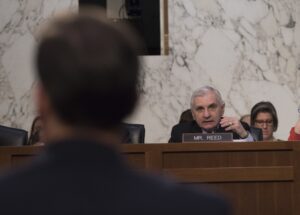
The Senate on Thursday voted 86-11 to pass its $886 billion fiscal year 2024 National Defense Authorization Act (NDAA), with negotiations now looming with the House to settle on a compromise final version of the legislation. The upper chamber spent the last week considering many non-controversial amendments to the defense policy legislation, which stood in contrast to the House’s contentious debate over GOP-offered amendments that led nearly all Democrats to oppose the legislation. “[The NDAA] authorizes record-level investments in the…

 By
By 










